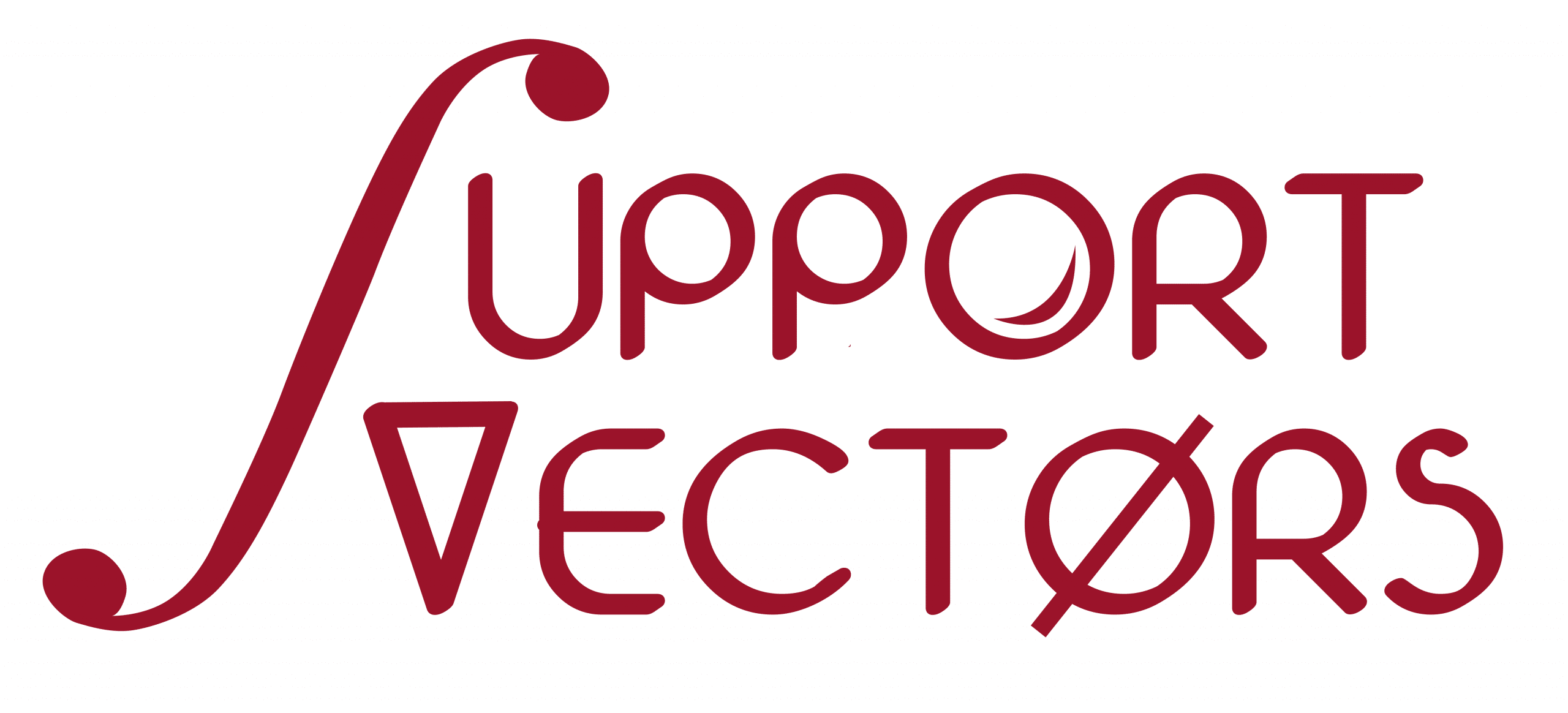Course Overview
Starting On Thursday, Jan 29, 2026
This comprehensive 12-week curriculum is meticulously designed to equip AI engineers with both theoretical knowledge and practical skills in Retrieval-Augmented Generation techniques (RAG) and AI Search. By engaging in hands-on projects and programming sessions, participants will not only understand the underlying concepts but also gain the experience necessary to implement and optimize RAG systems and AI search in real-world applications.
Emphasis on Practical Value: Each day’s agenda is structured to bridge the gap between theory and practice. Engineers will leave the course with a portfolio of projects, a deep understanding of advanced RAG methodologies and AI search, and the confidence to tackle complex challenges in the field of AI.
Learning Outcome
You will develop theoretical and hands-on expertise in Retrieval-Augmented Generation (RAG) techniques and AI Search.
Schedule
| Start Date | THURSDAY, Jan 29, 2026 |
|---|---|
| Duration | 12 weeks |
| Theory Session | Every Thursday, 7 PM to 10 PM PST |
| Lab Session |
Monday, 7 PM to 10 PM PST (Summary and Quiz) Tuesday, 7 PM to 10 PM PST (Lab) |
Call us at 1.855.LEARN.AI for more information.
Skills You Will Learn
Core Knowledge of Retrieval-Augmented Generation (RAG) and AI Search.
Prerequisites
Syllabus Details

This comprehensive 16-week curriculum is meticulously designed to equip AI engineers with both theoretical knowledge and practical skills in Retrieval-Augmented Generation techniques (RAG) and AI Search.
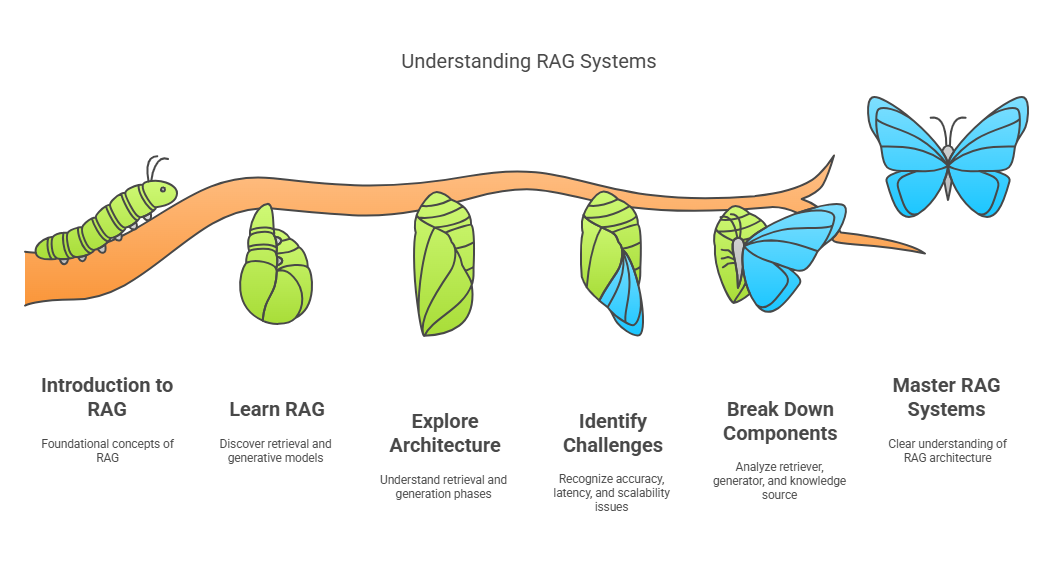
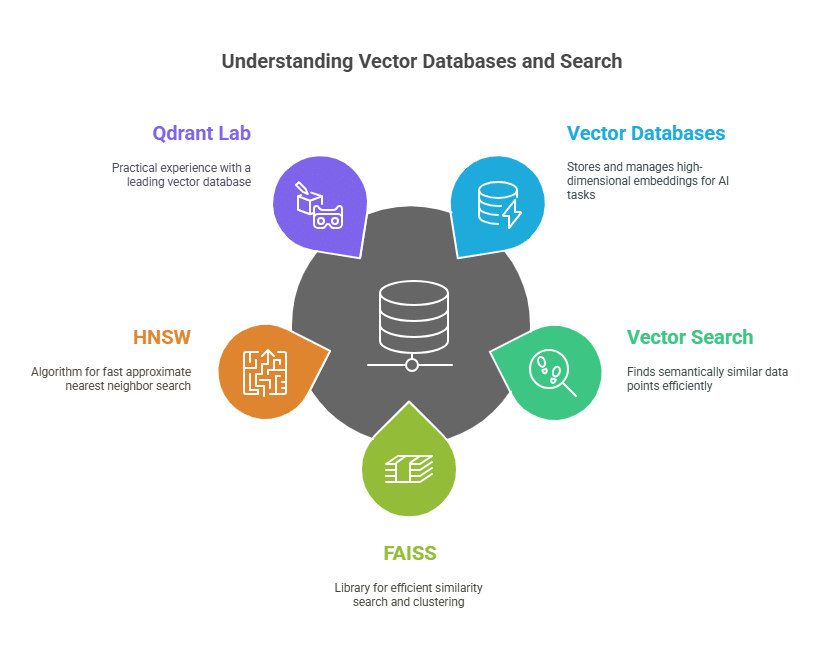
1.Vector Databases
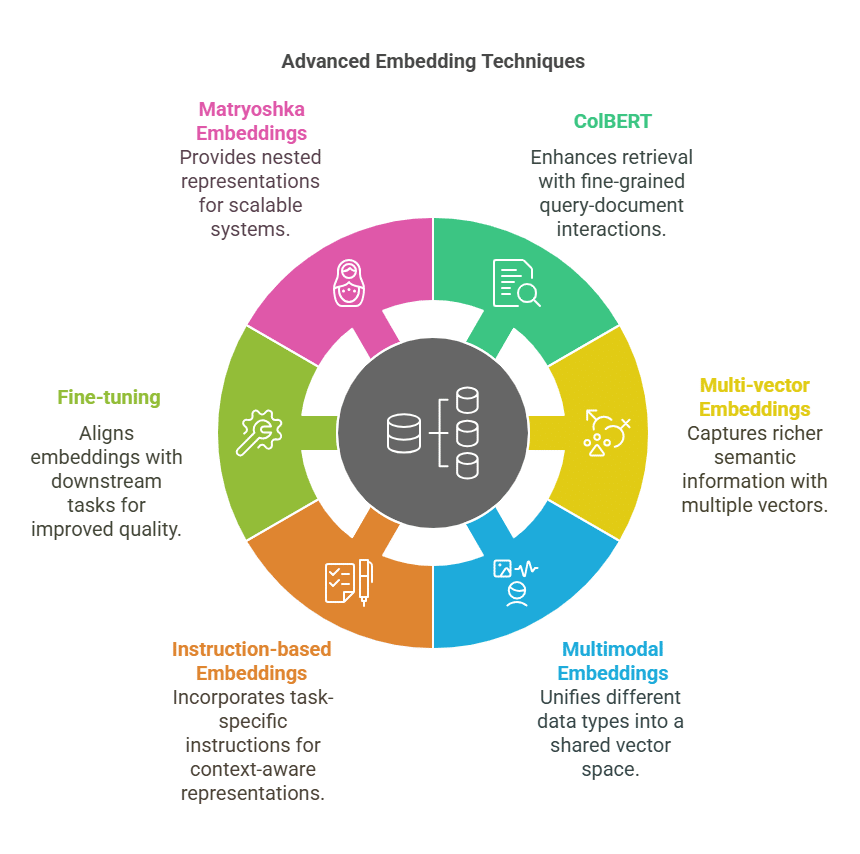
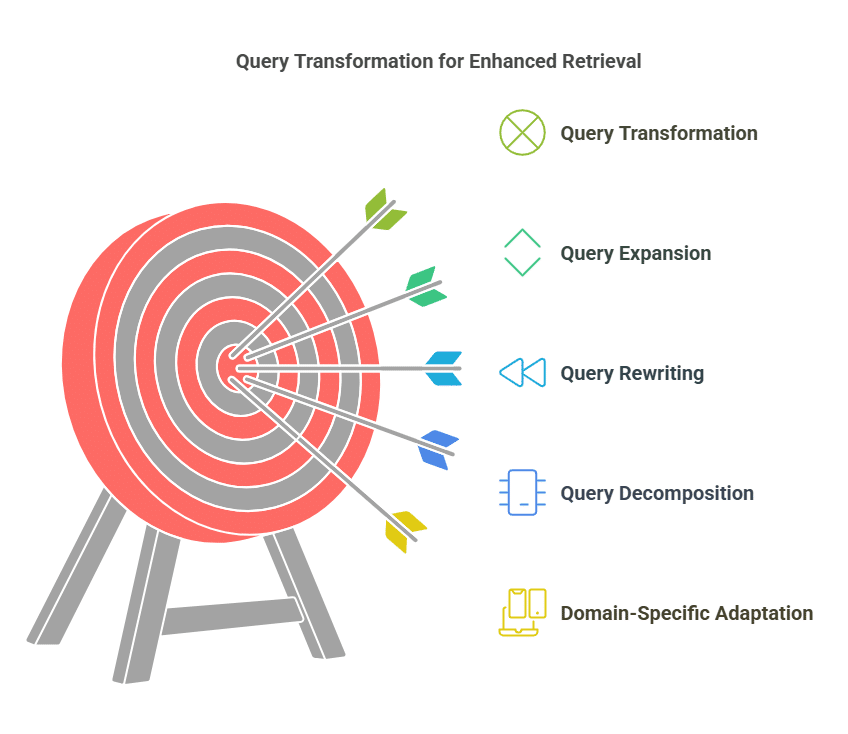
Overview:
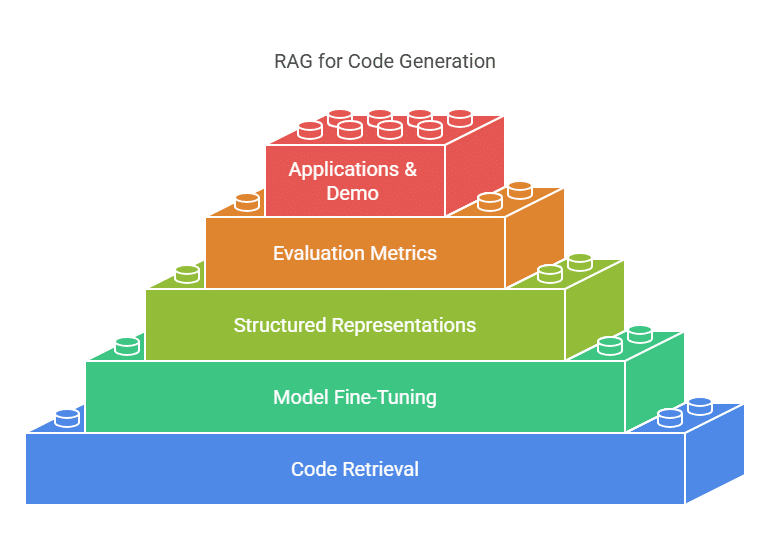
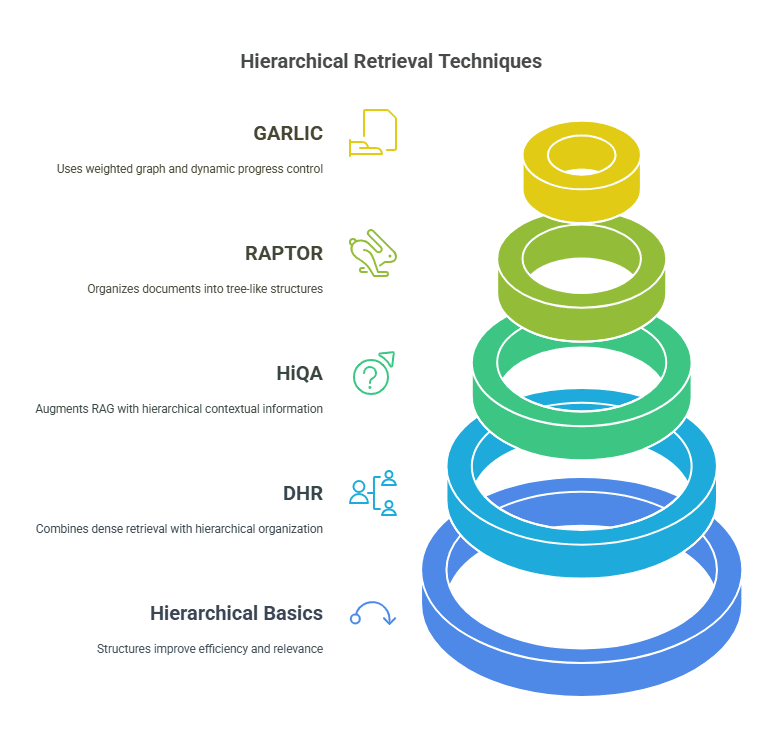

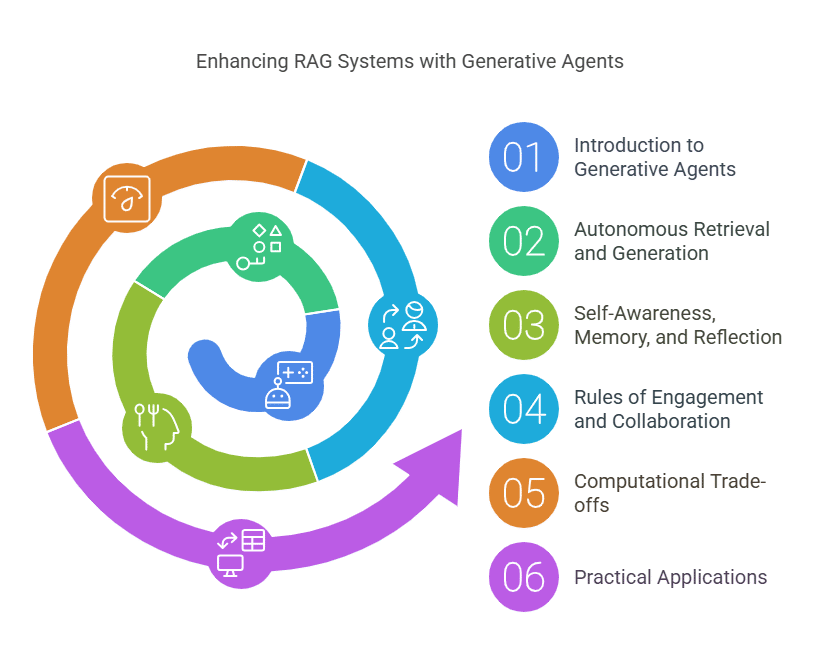
Overview:
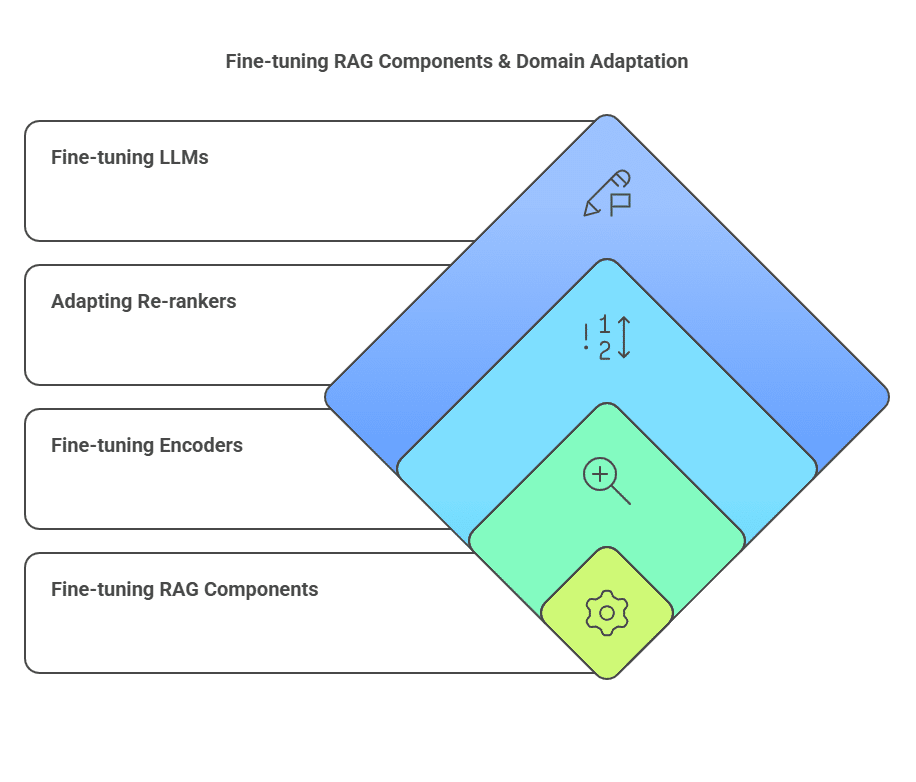
Overview:
Teaching Faculty

Asif Qamar
Chief Scientist and Educator
Background
Over more than three decades, Asif’s career has spanned two parallel tracks: as a deeply technical architect & vice president and as a passionate educator. While he primarily spends his time technically leading research and development efforts, he finds expression for his love of teaching in the courses he offers. Through this, he aims to mentor and cultivate the next generation of great AI leaders, engineers, data scientists & technical craftsmen.
Educator
He has also been an educator, teaching various subjects in AI/machine learning, computer science, and Physics for the last 32 years. He has taught at the University of California, Berkeley extension, the University of Illinois, Urbana-Champaign (UIUC), and Syracuse University. He has also given a large number of courses, seminars, and talks at technical workplaces. He has been honored with various excellence in teaching awards in universities and technical workplaces.

Chandar Lakshminarayan
Head of AI Engineering
Background
A career spanning 25+ years in fundamental and applied research, application development and maintenance, service delivery management and product development. Passionate about building products that leverage AI/ML. This has been the focus of his work for the last decade. He also has a background in computer vision for industry manufacturing, where he innovated many novel algorithms for high precision measurements of engineering components. Furthermore, he has done innovative algorithmic work in robotics, motion control and CNC.
Educator
He has also been an educator, teaching various subjects in AI/machine learning, computer science, and Physics for the last decade.
Teaching Assistants
Our teaching assistants will guide you through your labs and projects. Whenever you need help or clarification, contact them on the SupportVectors Discord server or set up a Zoom meeting.

Kate Amon
Univ. of California, Berkeley

Shubeeksh K
MS Ramaiah Institute of Technology

Purnendu Prabhat
Kalasalingam Univ.

Harini Datla
Indian Statistical Institute

Kunal Lall
Univ. of Illinois, Chicago
In-Person vs Remote Participation

Plutarch
Education is not the filling of a pail, but the lighting of a fire. “For the mind does not require filling like a bottle, but rather, like wood, it only requires kindling to create in it an impulse to think independently and an ardent desire for the truth.
Our Goal: build the next generation of data scientists and AI engineers
The AI revolution is perhaps the most transformative period in our world. As data science and AI increasingly permeate the fabric of our lives, there arises a need for deeply trained scientists and engineers who can be a part of the revolution.
Over 2250+ AI engineers and data scientists trained
- Instructors with over three decades of teaching excellence and experience at leading universities.
- Deeply technical architects and AI engineers with a track record of excellence.
- More than 30 workshops and courses are offered
- This is a state-of-the-art facility with over a thousand square feet of white-boarding space and over ten student discussion rooms, each equipped with state-of-the-art audio-video.
- 20+ research internships finished.
Where technical excellence meets a passion for teaching
There is no dearth of technical genius in the world; likewise, many are willing and engaged in teaching. However, it is relatively rare to find someone who has years of technical excellence, proven leadership in the field, and who is also a passionate and well-loved teacher.
SupportVectors is a gathering of such technical minds whose courses are a crucible for in-depth technical mastery in this very exciting field of AI and data science.
A personalized learning experience to motivate and inspire you
Our teaching faculty will work closely with you to help you make progress through the courses. Besides the lecture sessions and lab work, we provide unlimited one-on-one sessions to the course participants, community discussion groups, a social learning environment in our state-of-the-art facility, career guidance, interview preparation, and access to our network of SupportVectors alumni.
Join over 2000 professionals who have developed expertise in AI/ML
Become Part of SupportVectors to Inculcate In-depth Technical Abilities and Further Your Career.
